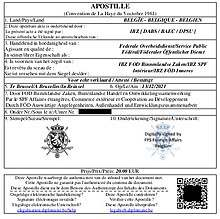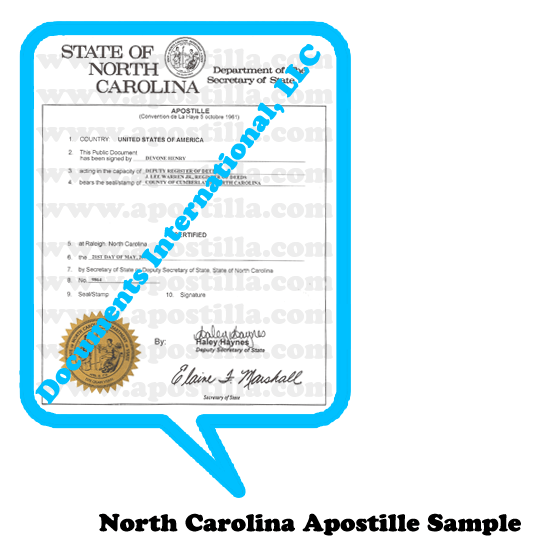Apostille Houston Solution-- Licensed Record Authentication for All Requirements
Apostille Houston Solution-- Licensed Record Authentication for All Requirements
Blog Article
Comprehending the Apostille Refine: A Comprehensive Overview to International Record Authentication
Navigating the detailed landscape of international paper authentication can be discouraging without a clear understanding of the apostille process. This overview diligently details the required steps, from identifying which papers need certification to submitting them for confirmation by the Competent Authority. Comprehending the relevance of an apostille and recognizing prospective challenges, such as insufficient submissions and language obstacles, can considerably simplify the verification trip. What specifically defines an apostille, and why is it so vital for documents destined for Hague Convention countries? These concerns create the foundation of our exploration right into this necessary lawful procedure.
What Is an Apostille?
An apostille is a main accreditation that verifies the credibility of a record for use in one more nation. This certification, released by a marked authority in the country where the document stemmed, makes sure that the document is identified as legitimate and legit in the global sector. The procedure of getting an apostille includes several actions, consisting of the verification of the document's trademarks, seals, and stamps by appropriate governmental bodies.
The apostille serves as a worldwide acknowledged kind of authentication, made possible by the Hague Convention of 1961. This treaty, officially understood as the Hague Convention Eliminating the Need of Legalisation for Foreign Public Documents, standardizes the procedure of paper accreditation amongst participant countries. The apostille itself is a standardized certificate that contains certain info, such as the providing authority, the native land, and the date of issuance.
It is very important to keep in mind that not all files are eligible for an apostille. Normally, public files like birth certifications, marriage licenses, court orders, and educational diplomas qualify for this certification. Private records, such as contracts and contracts, might call for notarization and additional actions to qualify.
Value of Apostille
Understanding what an apostille is sets the phase for appreciating its significance in global ventures. houston tx apostille. An apostille, basically a type of certification issued by a marked authority, validates the credibility of a record for use in international nations that are signatories to the Hague Apostille Convention. This standard procedure gets rid of the requirement for more legalization by embassies or consular offices, consequently enhancing international deals
It guarantees the reputation and approval of necessary files-- such as copyright, marriage licenses, and instructional diplomas-- throughout boundaries. For organizations, it promotes the smooth conduct of global profession, mergings, and acquisitions by giving a trusted method of file confirmation.
Moreover, an apostille enhances legal safety and compliance. Federal governments and institutions can with confidence count on the credibility of papers birthing an apostille, alleviating the danger of scams and misrepresentation.
Documents That Need Apostille
When engaging in worldwide transactions or lawful matters, specific papers commonly require the see this website verification supplied by read an apostille. This ensures their recognition and acceptance in countries that are signatures to the Hague Apostille Convention. Generally, individual papers such as copyright, marriage certifications, and fatality certificates call for an apostille, especially when they are utilized for procedures like migration, marriage abroad, or global probate issues.
Educational documents are an additional category often calling for apostilles. Diplomas, transcripts, and academic records often need this authentication for purposes such as seeking further education and learning, employment, or specialist licensing in a foreign country (houston tx apostille). This action guarantees that the papers are recognized as genuine and legitimate
Lawful papers, including powers of attorney, affidavits, and court orders, additionally frequently demand apostilles. Organization records such as certificates of consolidation, bylaws, and business agreements may call for an apostille to facilitate worldwide profession, establish foreign branches, or engage in cross-border legal procedures.
Steps to Get an Apostille

Acquiring an apostille involves a multi-step procedure that makes sure the credibility and acceptance of your records in international nations. The initial step is identifying which papers require an apostille. houston tx apostille. Common documents consist of copyright, marriage licenses, scholastic transcripts, and corporate documents
Once determined, the paper needs to be accredited by the ideal releasing authority. After certification, the record must be sent to the assigned Competent Authority in the document's nation of origin.
The entry process typically requires a completed application type, the initial document, and a fee. Some jurisdictions might offer the choice of expedited handling for an extra cost. Upon effective confirmation, the Competent Authority will fasten the apostille certificate to the document, consequently verifying its credibility.
Common Difficulties and Solutions
Navigating the apostille process can offer numerous typical difficulties that, otherwise properly attended to, may postpone or complicate paper verification. One regular issue is the entry of incorrect or incomplete papers. Each nation has particular requirements for the kinds of files that can be apostilled, and any kind of discrepancy from these can result in being rejected. Making sure that all papers are exact and total before submission is critical.
One more common obstacle is understanding the varied processing times. Handling times can vary significantly between countries and also between various areas within the exact same nation. It is important to represent these variations when read preparing the apostille process to stay clear of unexpected delays.
Furthermore, language barriers can position substantial barriers. Documents in an international language typically need certified translations, and any type of mistakes in translation can result in further complications. Involving a specialist translation solution can mitigate this risk.

Conclusion
Understanding the apostille procedure substantially enhances the performance of global file verification. By understanding the requirement of determining and accrediting required records, and browsing the entry to the Competent Authority, the procedure becomes more manageable.
Report this page